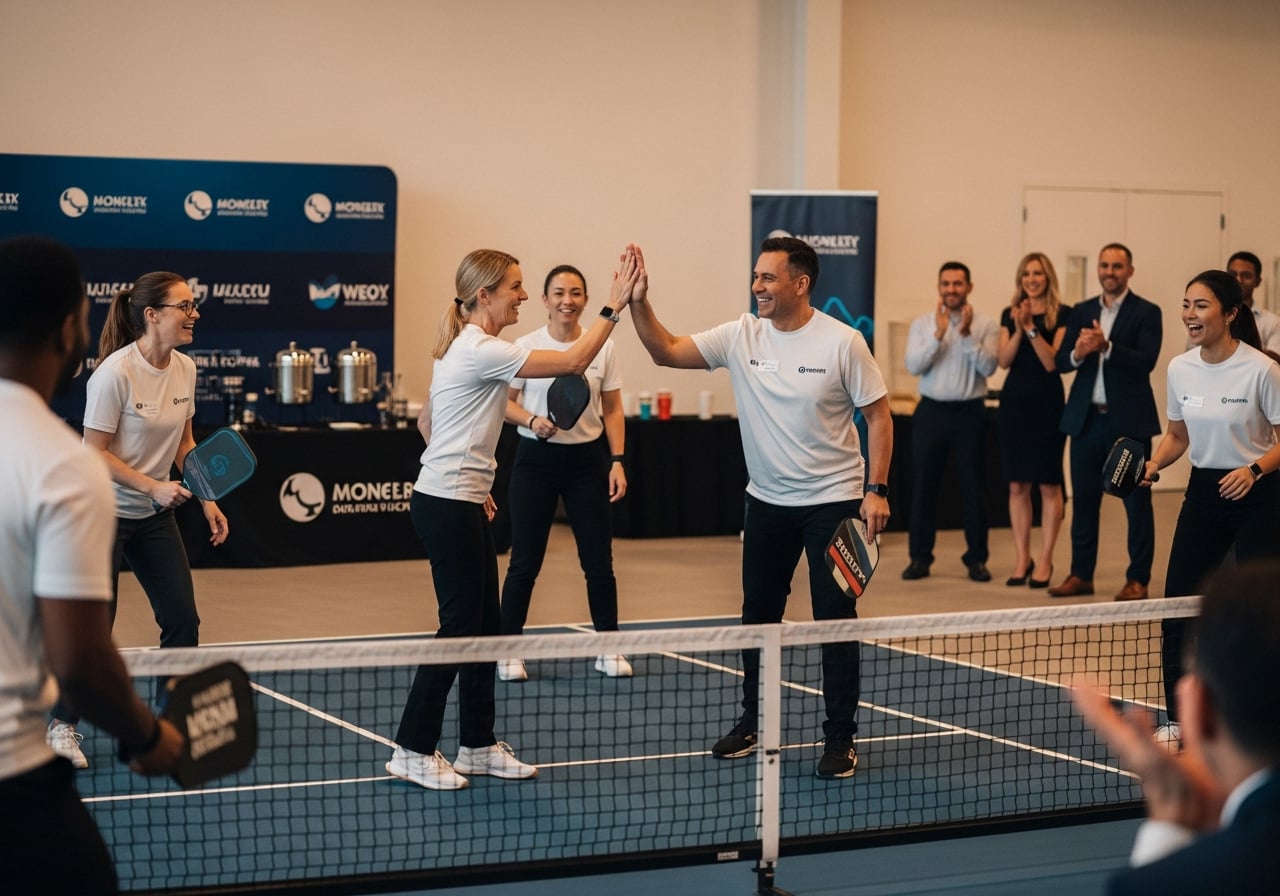
Article
Building Resilience, One Pickleball Rally at a Time
In corporate life, the word resilience gets tossed around a lot. We hear about the need to “adapt to change” or “stay strong under pressure,” but translating those ideas into real, lived skills is harder than it sounds. What if the pathway to resilience wasn’t in a classroom, a webinar, or a motivational talk—but on a pickleball court?
Pickleball might seem like an unlikely candidate for building deep personal and professional resilience. Yet, if we take a closer look, it offers a living, breathing laboratory for the skills that help people navigate change, overcome setbacks, and work effectively with others.
The Eight Elements of Resilience... Through the Lens of Pickleball
Resilience isn’t a single trait; it’s a mosaic of interconnected abilities. In most models, eight core elements stand out—and pickleball, in its surprising simplicity, provides opportunities to practice each one:
1. Emotional Regulation: In a game, you can’t control the outcome of every rally. You can, however, choose your response to a missed shot. That same ability to self-regulate translates directly into staying composed when a deal falls through or a project hits a snag.
When was the last time you paused before reacting in a high-pressure moment?
2. Positive Thinking: Every point in pickleball starts fresh. The score resets your mindset, if you let it. Imagine carrying that same fresh-start mentality into challenging client negotiations or post-mortems after a failed campaign.
Do you tend to focus more on what went wrong—or what could go right next?
3. Adaptability: Opponents change tactics. The wind shifts. The ball bounces oddly. Adaptability on the court becomes practice for adaptability in a fast-moving business landscape.
How quickly can you adjust when your best-laid plan stops working?
4. Problem-Solving Skills: That moment when you read your opponent’s stance and decide where to place your shot? It’s the same cognitive agility you draw on when analyzing data, adjusting strategies, or making operational decisions under pressure.
What’s your process for finding a solution when the obvious path is blocked?
5. Healthy Coping Mechanisms" Pickleball channels stress into motion, focus, and camaraderie. It’s a reminder that we can find constructive outlets for tension—whether in a rally or during a high-stakes workweek.
When stress hits, where do you channel that energy?
6. Strong Relationships: Doubles partners rely on each other completely. Communication, trust, and encouragement are non-negotiable—principles equally vital in cross-functional teams and client partnerships.
Who on your team knows they can count on you, no matter what?
7. Sense of Purpose: A match isn’t just about points; it’s about the shared goal of playing well together. Purpose at work isn’t all that different—it’s the unifying “why” that keeps people moving in the same direction.
What bigger goal gives meaning to your day-to-day work?
8. Self-Knowledge & Insights: After a game, reflecting on what worked and what didn’t can be uncomfortable—but also illuminating. That willingness to examine your own patterns is equally valuable in personal development and career growth.
What did your last setback teach you about yourself?
Different Teams, Different Paths
One of the fascinating things about resilience is how it manifests differently in different roles.
▪️ For sales teams, resilience might be about maintaining optimism and momentum in the face of repeated “no’s.”
▪️ For customer service staff, it could be the ability to stay calm and resourceful when emotions run high.
▪️ For project teams, it might be the art of pivoting quickly when a key variable changes.
Pickleball provides a flexible framework that can be shaped to emphasize the specific resilience skills a group needs most.
The Value of Time and Repetition
Resilience isn’t built in a single afternoon—just as no one becomes a skilled pickleball player after their first game. There’s something powerful about revisiting the court regularly, each time layering new skills over familiar ones.
Over weeks or months, participants can see and feel both their gameplay and their personal resilience grow. The repeated cycle of challenge, adjustment, and mastery is where real transformation happens.
A Quiet Realization
Step onto a pickleball court with colleagues, and you may think you’re just there for a game. But somewhere between serves and volleys, in the silent micro-decisions after a point is lost or won, something more is taking shape.
You’re learning to regulate emotions, to adapt without overthinking, to reframe setbacks, to connect with others—and perhaps, without even noticing, to carry those lessons back into the meeting room, the client call, and the challenging quarter.
Pickleball, it turns out, isn’t just a game. It can be a mirror for how we navigate our professional lives—and an unexpected teacher in the art of resilience.
